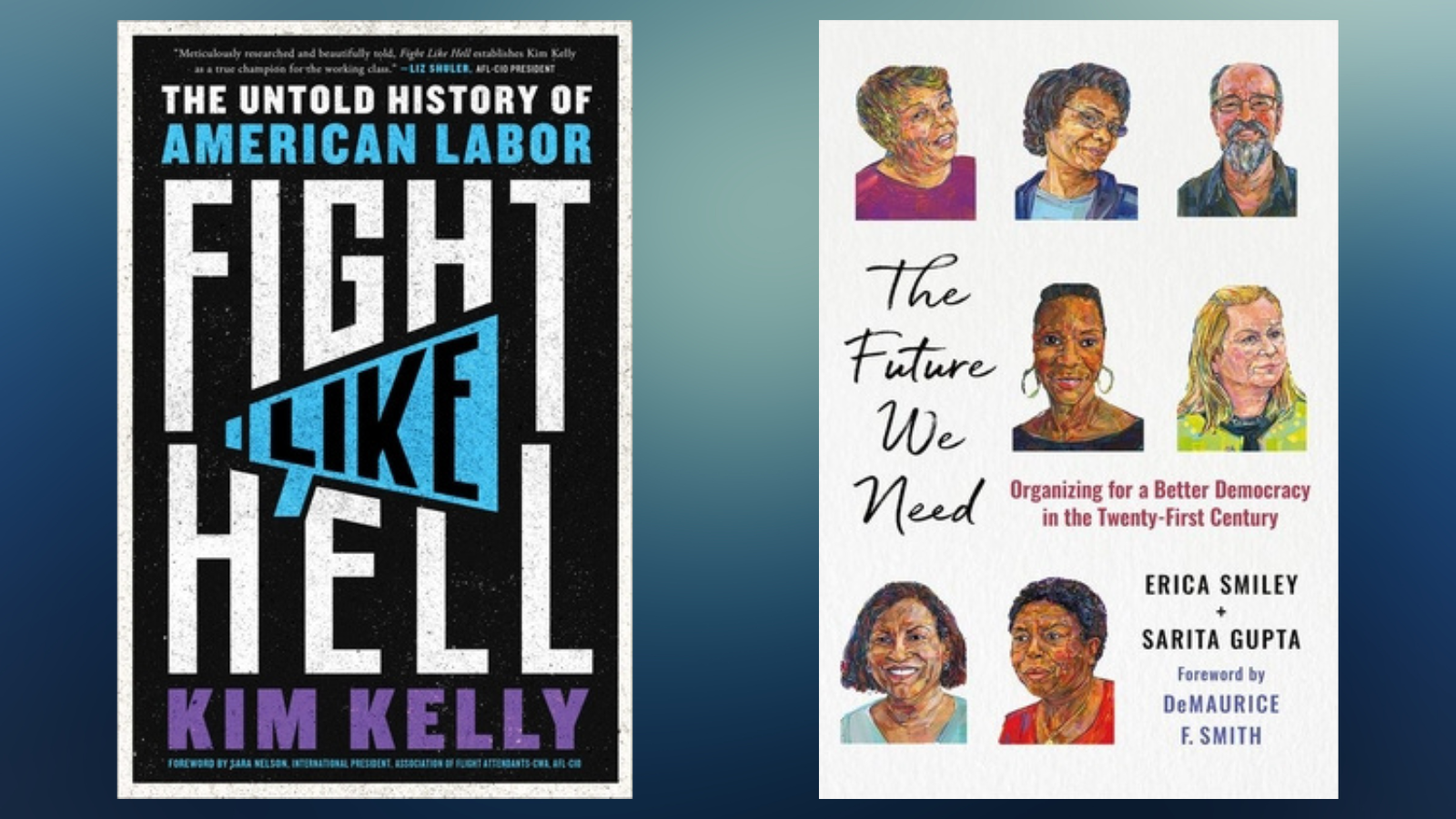
There is a lively debate on how workers can fight for better conditions and a better world today. Proposals range from tweaks like labor law reform or bigger union organizing budgets to efforts to replacing collective bargaining with individual employers with government-sponsored industry-wide national bargaining tables, from replacing “union jurisdiction” with multi-union organizing coalitions. to “solidarity unionism” focused on direct action on the job by independent “worker-led” unions.
Two new books make a significant contribution to that discussion.
Kim Kelly’s Fight Like Hell: The Untold History of American Labor describes the heroic battles of workers to gain their rights and create a better life for all working people. It illuminates those who have often been left out of historical accounts, like “poor and working-class women, Black people, Latino people, Indigenous people, Asian and Pacific Islander people, immigrants of all backgrounds, religious minorities, queer and trans people, disabled people, the sex workers and undocumented people whose work is criminalized, and people who are incarcerated.” Many of them have been excluded not only from the history books, but from the self-declared “House of Labor” itself. This is labor history for the era of diversity.
Fight Like Hell not only recounts worker action in the past, it describes how these struggles are continuing today. Contemporary accounts range from the effort to win a union election at the Amazon warehouse in Bessemer, Alabama to recent struggles for equal rights for Black, LGBTQIA, and sex workers. Like workers in the past, such workers today have to put their jobs, their well-being, and sometimes even their lives on the line to win the most elementary rights on the job.
Erica Smiley and Sarita Gupta’s new book The Future We Need: Organizing For a Better Democracy in the Twenty-First Century makes a significant and original contribution to that debate. Smiley and Gupta are respectively the present and past executive directors of Jobs with Justice, a labor rights organization with coalitions in over 30 cities and states advocating that all workers should be able to bargain collectively. Jobs with Justice provides an ideal location to observe both the difficulties and the new developments in worker organization. The Future We Need showcases “the creative strategy of Black workers, immigrant workers, southern workers, and workers from the global south” as “models to be scaled up in ways that viably challenge trends in today’s global economy” so that we can build “a society that works for all of us.”
For more, see Jeremy Brecher’s review “New Foundations for the House of Labor” here.